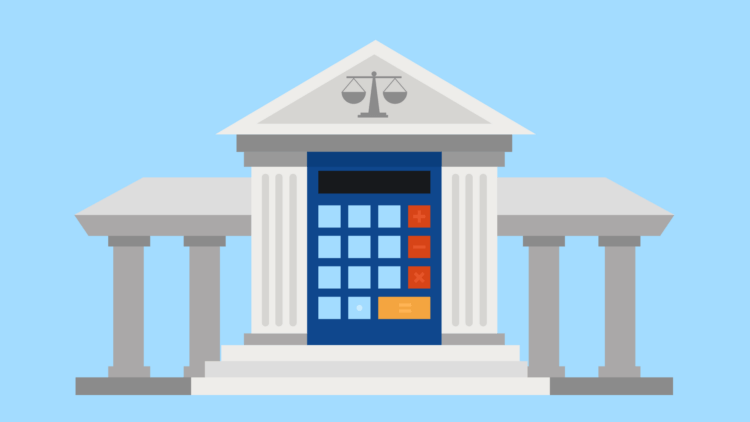When it comes to getting paid, plenty of options are available for lawyers. They can use:
- Hourly rates based on time spent.
- Flat fees that have a fixed cost.
- Contingency fees tied to case outcomes.
- Retainer fees that require upfront payments.
How do you know what’s best for your law firm? It starts with gaining a solid understanding of each legal billing model. In this blog, we’ll provide a comprehensive look at retainer fees—covering the types available, how they work, and the benefits they bring clients and lawyers alike.
A retainer fee is an advance payment made by a client for future legal services. Lawyers determine this fee by estimating the hours needed for a case and multiplying it by their hourly rate. This fee is paid before any work begins, and as lawyers work on the case, they deduct their fees from the retainer, held in a dedicated account.
What is a retainer fee for a lawyer?
What are the types of retainer fees?
There is no one-size-fits-all model for retainer fees. Instead, the payments come in various forms and structures, allowing lawyers to tailor them to the unique needs of their clients and firm. Next, we’ll delve into some of the common types of retainers—starting with a look at the difference between earned and unearned retainer fees.
Earned retainer fee
A lawyer receives earned retainer fees for the services they have provided. These funds are transferred into a law firm’s operating account only after they’ve done the work, which explains why they’re called “earned” fees.
Unearned retainer fee
Unearned retainer fees are upfront payments held in a dedicated retainer account before any legal work begins. Lawyers can’t access the funds until they complete the work—the fee simply acts as a deposit that ensures the availability of funds for future support. Once the lawyer renders the services, they transfer the funds from a client trust account into an attorney’s operating account.
Retainer fee examples
Retainer fees are well-suited to a range of legal matters and client needs. Below, we’ve highlighted a few different examples of legal retainer fees.
- A classic retainer fee, also known as a general retainers, is an upfront payment made to secure legal services. These fees aren’t tied to any hours or services—they only guarantee that the lawyer will be available for legal services when a need arises.
- A security retainer fee is an upfront payment for legal services, where the client owns the funds up until the point the work is completed by the lawyer. Once the legal work is completed, the lawyer can access the money. This is often used when there may be high expenses associated with a legal matter.
- An evergreen retainer fee is an agreement where a client pays a fee into a separate trust account, which a lawyer invoices against once services are provided. The fee is replenished once it hits a predetermined minimum balance. This fee structure is popular among clients who require regular legal support, such as those dealing with family law matters.
Set yourself up for success with our free Guide to Starting a Law Firm.
Get the Guide
How do retainer fees work?
After an initial consultation with a lawyer, a client will make an upfront payment that covers the agreed-upon deposit for the legal services. As a lawyer works on the matter, they will track their time and bill against this retainer fee.
Let’s say the hourly rate is $250. The retainer might be $2,500 if a lawyer estimates the matter will take them 10 hours. If you only spend two hours on the matter in the first month, you reduce the retainer by $500, making the remaining balance $2,000. The next month, the balance would be $750 if the lawyer works five hours. You get the idea.
It’s important to note that retainers are only a deposit and might not reflect the final bill amount. If a lawyer spends less time on the matter than estimated, the additional amount would be refunded to the client. If they spend more time, the client will add to the retainer.
When accepting retainer fees, lawyers must always follow the legal and ethical guidelines in their jurisdiction. Recently, the American Bar Association issued an ethics opinion to guide lawyers’ handling of advance fees made by clients for legal matters. You can learn more about it here.
You may like these posts
What is a retainer fee agreement?
Like any industry, payments can be a major pain point for lawyers. That’s why it’s important to have documents in place that set clear expectations and prevent any misunderstandings.
This is where the retainer fee agreement comes in. It’s essentially a written document that outlines the terms of engagement between a client and a lawyer.
Some common elements include:
- Basic contact information
- Scope of legal services
- Type of retainer and retainer amount
- Payment terms
- Communication frequency
- Termination clause
How should retainer fees be paid?

Retainers can be paid in a variety of different ways, depending on the preferences of a lawyer and the clients they serve. That includes:
- Upfront payments – fees paid in a full, single payment.
- Installments – payments divided into smaller, predetermined amounts, which clients make over a specific period like monthly or quarterly. Installments help ease the burden of large payments, increasing the affordability of legal services.
- Subscription models – are recurring retainer fees that replenish at various intervals to maintain access to legal services. Businesses or people who need regular legal assistance often use subscription models.
If the very thought of keeping track of the payments associated with retainer fees seems daunting, don’t worry. Today, legal payment processing solutions make the process as easy as possible.
Take Clio Payments, for instance. The software allows lawyers to effortlessly accept secure online payments for retainer fees. Automation can take care of many tedious tasks, like automatically processing recurring payments or sending reminders to clients about retainer top-ups. Clio also handles all trust-related transactions, including refunds, in compliance with trust accounting and IOLTA regulations.
Why lawyers should use a retainer fee
Although they may not be for everyone, retainers can bring an array of powerful benefits to many clients and lawyers. Here’s a closer look at their advantages.
Increased financial stability
With a retainer fee, law firms will be able to better predict their work and manage their time because of this foresight. They also have peace of mind in knowing that they’ll have a steady and reliable stream of income.
Improved client experience
Retainer fees promote a better client experience. That’s because it gives clients the confidence that you’ll be there when you need them. These regular and ongoing interactions can build trust—and ultimately, ensure a stronger understanding of their needs and preferences.
Protection for lawyers and clients alike
Retainer fees protect lawyers and clients. By enabling lawyers to securely retain funds until completing the work, they decrease the likelihood of encountering potential payment issues. Clients also gain assurance that their legal needs will receive prompt and reliable support when required.
What fee structure is the best option for your law firm?
If you’re debating which fee structure is right for your firm, a number of factors will come into play. These include:
- Your law firm’s goals
- Client preferences
- Practice focus
- Geographic location
One thing is certain: clients are looking for flexibility more than ever before. Clio’s 2022 Legal Trends Report found that clients want lawyers to offer more billing options—and this can even affect their decision to hire a firm. For instance, 67% want the option to pay for legal services via flat fees but only 37% of law firms offer this.
For that reason, you may want to consider offering a combination of fee structures in addition to retainer fees—including hourly billing, flat rates, and contingency fees.
You may also decide that other alternative fee arrangements are a good fit for your firm. Cloud-based practice management solutions, like Clio, make it easy to offer this range of payment options.
Final notes on retainer fees
Retainer fees provide a multitude of benefits to law firms, from promoting stronger client relationships to improving cash flow. Clients also win as they gain confidence in knowing that they’ll have access to a lawyer’s time for future needs. Legal technology solutions, like Clio Payments, can do a lot of the heavy lifting in handling the administrative side of retainer fees, such as automated payment reminders and splitting bills for multiple payers.
Try Clio for free and see how you can upgrade your law firm’s billing processes today!
We published this blog post in August 2023. Last updated: .
Categorized in: Accounting









